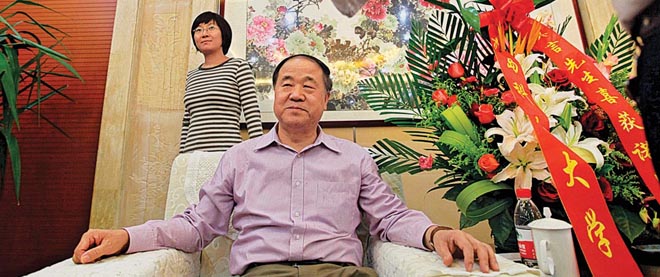Good news, bad news
This week: Cuban travels, a bump for Quebec separatism, and an Ocean’s 11-esque heist in Holland
Jason Lee/Reuters
Share

Open books
After months of stonewalling, the Conservative government started handing over details of $5.2 billion in spending cuts, outlined in the last budget, to parliamentary budget officer Kevin Page. Page has insisted he needs these numbers to do his job—that is, to inform Parliament about the state of Canada’s finances. Treasury board president Tony Clement’s assertion that Page was reaching beyond his mandate was disappointing and unconvincing. While it’s a shame Page had to threaten to take Ottawa to court to get his way, it’s nice to finally see the Tories give the PBO—a position they created—the leeway to do his job.
Cuba libre
For the first time in 51 years, Cubans will be able to travel outside the country without applying for an exit permit, a document that was historically difficult to obtain and often denied to dissidents. Depending on how it’s implemented in January, the proposed change could be the most significant reform introduced by President Raúl Castro, who has also launched experiments with a market economy, and could go a long way toward normalizing relations with the island’s neighbours.
Airline aces
Kudos to Air Canada this week for literally flying to the rescue of a solo sailor stranded in the Tasman Sea. After being alerted by Australian officials that a yacht was in distress, the pilots of an Air Canada Boeing 777, flying from Vancouver to Sydney, diverted course and descended to 1,800 metres to start the search. Circling over the ocean, the pilots and passengers scanned for the de-masted yacht, eventually spotting it and enabling rescuers to arrive on the scene.
Cool it
New climate data from the U.K.’s meteorological office show that between 1997 and 2012 there was a pause in global warming, reported the Daily Mail. Scientists were quick to discount the newspaper’s declaration that “global warming stopped 16 years ago,” but the data have raised questions about just how fast global warming is happening and whether dire forecasting models are taking into account periods of reduced warming.
BAD NEWS
Bad neighbour
Tensions continue to escalate between Syria and Turkey, which has found itself uncomfortably close to the fighting between Syrian rebels and Bashar al-Assad’s regime. Both countries have imposed aircraft bans on each other after Turkey intercepted a Syrian passenger jet en route from Moscow to Damascus that it says was carrying Russian munitions. Meanwhile, clashes continue along the border as Assad’s forces hunt for rebels, and refugees (now over 100,000 of them) flee for safety. The bad blood threatens to turn a civil war into an even more dangerous regional one.
Not exactly Goldfinger
Canadian naval intelligence officer Jeffrey Paul Delisle pleaded guilty last week to spying for Russia. The details that came out in a Halifax courtroom revealed him to be a functionary struggling with money problems and a failing marriage who turned to stealing documents—everything from secret military contact lists to reports on organized crime—and smuggling them from his office on a thumb drive for the Russians. That there was a spy in our midst was bad enough. That he worked for $5,000 a month, then took a pay cut to a mere $3,000, is downright embarassing.
Oh, non
French President François Hollande announced that he will revive his country’s policy of “non-interference, non-indifference” on the question of Quebec independence, reversing Nicolas Sarkozy’s Canada-friendly opposition to separatism. The President made the announcement after his first meeting with new Quebec premier Pauline Marois, who delightedly announced that Hollande was “standing at our side.” At least he stopped short of declaring: “Vive le Québec libre!”
Art of the steal
Seven paintings, including works by Pablo Picasso, Lucian Freud and Henri Matisse, worth hundreds of millions of dollars, were stolen from a Netherlands museum. Thieves somehow bypassed a “state of the art” security system at the Kunsthal Rotterdam and evaded police who responded within minutes to an alarm. The works of art were on loan from a private foundation, and were part of a collection on display to the public for the first time.